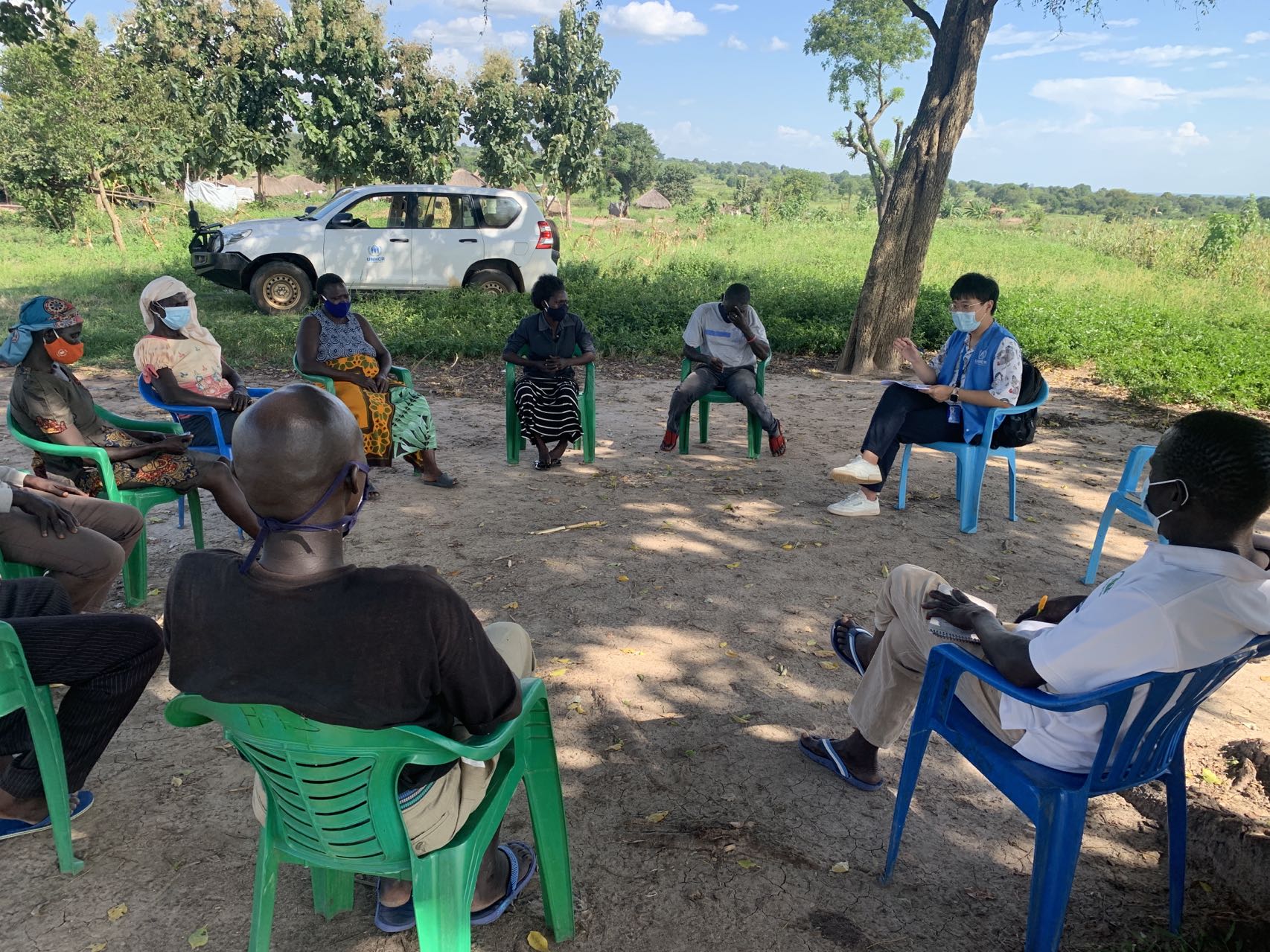
As UNHCR frontliners, we work around the clock to aid the refugees in the camp, and we go the extra mile to foster close bonds with the community.
Our decisions can have a strong impact on others’ lives. Recently, the story of a 25-year-old UNHCR intern Sun YiFei, was shared by local media Sing Tao Daily, demonstrating his frontline work at Bidibidi refugee camp in Uganda. By helping refugees gain new skills and receive education, he empowers them for a better future.
As a master student from the Columbia University School of Education, YiFei understands how important education is, and he has high ambitions to support refugees on the frontline. Yet, when asked about the challenges encountered by young female refugees in terms of access to education, the cheerful YiFei began to look grave,
“This situation breaks my heart…
Everyone has the right to education, but this fundamental human right is not accessible to all.”
Learning has been disrupted for millions of students across the globe, and the school attendance problem is distinctly grim in Africa. Whilst schools are shut due to COVID-19, UNHCR has been working to provide remote learning programmes via radio broadcasts and self-learning materials to support refugee students. However, not all refugee students, particularly refugee girls who are forced to stay in their home, have access to education.
Being affected by conflicts, poverty and societal conventions the girls are in lack of equal rights with fewer educational and vocational opportunities, the girls are in lack of equal rights with less educational and vocational opportunities. The emergence of the pandemic also caused formerly declining child marriage and teenage pregnancy rates to rebound, further disrupting their path to a bright future.
YiFei believes that higher education is the key to changing lives. Although the road to promoting education might be full of obstacles, he overcomes adversity and assists talented refugee youth from South Sudan to apply for the DAFI scholarship. Despite some refugee students failing to receive scholarships under stiff competition, YiFei’s confidence and faith provide encouragement to inspire refugees to pursue their study dreams.
“Teach a man to fish, and you feed him for a lifetime, ” he said.
A touch of sweetness amidst difficulties
Whilst working abroad along, the presence of malaria and intensifying terrorist attacks in the Ugandan capital, Kampala, has triggered continuous feelings of homesickness in YiFei. Thankfully, with the help of local co-workers at UNHCR, he has quickly integrated into the Yumbe Sub Office.
Of all the frontline interviews, there is one that he particularly remembers. A refugee looked back at her encounters fleeing persecution, watching loved ones dying. “This woman is actually of similar age as my mother. Interviewing these people feels like talking to my parents, so it can be quite emotionally distressing sometimes,” YiFei shared.
YiFei also pays close attention to how refugees spend their time at the camp. Through observing different aspects of life, he sees that simple activities like ‘Bidibidi Got Talent’, a talent show with a mobile music truck, can cheer refugees up in uncertain times.
Protecting the next generation of refugees
Despite being halfway across the world, YiFei upholds his initial resolution. He hopes to stay on the frontline and safeguard the rights of refugees.
“By flying across the globe and coming to East Africa, I hope to leverage my professional abilities, contribute to refugees’ education and build a peaceful environment for their future. I hope to combine my expertise in education with refugee protection, and remain on the frontline at their disposal.”
He often introduces himself to refugees as ‘Sun (the pronunciations of his surname)’. He shares, “My cooking is pretty good, maybe I should start a side business and make Chinese food for everyone.”
About UNHCR:
The Office of the United Nations High Commissioner for Refugees (UNHCR) was established on 14 December 1950 by the United Nations General Assembly. The agency is mandated to lead and coordinate international action to protect refugees and resolve refugee issues. It strives to ensure that everyone has the right to seek asylum and find safe refuge in another state, with the option to voluntarily return home when conditions are conducive for return, integrate locally or resettle to a third country. UNHCR has twice won the Nobel Peace Prize, in 1954 for its ground-breaking work in helping the refugees of Europe, and in 1981 for its worldwide assistance to refugees.
Share on Facebook Share on Twitter